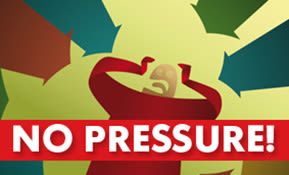
Why Won’t They Listen?
Education, yes; tyranny and insult, no! Children are inclined to listen to what a parent has to say when they know that the parent regards them with dignity.

In most cases, children not only look like their parents – they act like their parents. The Talmudic sages hit the nail on the head when they said, “The acts of fathers are steppingstones for sons”, in other words, children walk in the path of their parents’ actions, and not necessarily in the path of their parents’ preaching.
Probably the most hackneyed question I hear from parents – whether over the phone, via email, or on the street – is, “What do I do to make my son/daughter listen to me?” Other top-ten contending parental remarks include, “I can’t understand why my son won’t open a book,” or “my daughter refuses to dress modestly, and has become downright insolent lately.” The tunes are more than familiar to many of us.
My answer is twofold: First, make sure you’re a shining personal example of whatever you want to teach your child; second, preserve your child’s dignity.
Parental Example
Preaching and/or yelling serve no purpose. Physical punishments are even worse. The moment a parent raises a voice or a hand in anger, that parent has lost control, just like a drowning person yelling and splashing while trying to stay afloat. Irate parents are just as ineffective as drowning people.
Parents who serve as personal examples never need to yell or threaten. When parents speak with love and respect to each other, their children will follow suit. When a parent prays with fervor, a child will also seek a connection with The Almighty. But, when a parent is a hypocrite or a liar, the child won’t listen to a word that parent says. Children love consistency and truth, for they feel most secure in an honest environment.
Parents who run a materialistic-oriented household, and measure success and the value of people and things in dollar signs, can’t expect their children to be spiritual. If a father buries his nose in the morning newspaper, he has no moral right to demand that his son should love Talmud study.
Children are mirrors of their parents; that’s why in Breslever Chassidic thought, whenever we have a problem with a child, we don’t reprimand the child until we first do intensive and extensive soul-searching within ourselves. Usually, once we correct our own deficiencies and misdoings, then our children’s behavior falls right into place. The acts of fathers are steppingstones for sons – there is no better way of educating children than personal parental example.
A Child’s Dignity
Remember this important rule: A broken bone heals much faster than a broken heart. This rule holds especially true with children. I’ve seen courageous children getting a wound stitched without the help of anesthetic, that didn’t emit the tiniest whimper. Yet, the very same child could completely lose his or her emotional equilibrium when viciously insulted by parents.
Contrary to popular opinion, our children are not ours; they are precious divine souls that by The Almighty’s grace have been entrusted to us for safekeeping and for educating until they’re old enough to stand on their own. Children are not our servants, and certainly not our slaves. The tasks we give them to perform in and around the household should be designed as an integral part of their education – our helping them to prepare for life – and not for the purpose of lowering our domestic or garden help expenses.
By religious law, we are required to speak to our children with the same respect that we’d speak to any adult stranger. Just as we have a duty to protect our children’s physical health, we have a duty to protect their emotional health. Parents with no training, knowledge, or awareness of what proper child education is according to Torah statutes are often the prime causes of their children’s emotional difficulties. One can be a stern parent and a good disciplinarian without attacking the child’s dignity. On the contrary, a child who knows that he or she is loved, respected, and held in high esteem will readily fulfill the parents’ will. A child who lives under a reign of tyranny will revolt at the first opportunity.
Education, yes; tyranny and insult, no! Children are much more inclined to listen to what a parent has to say when they know that the parent regards them with dignity. Even more so, there is no Halachic dispensation for disparaging one’s children, G-d forbid. Children under thirteen do not have the authority to forgive. Therefore, any verbal abuse – and it goes without saying, physical abuse – of a parent against a child is a sin than not even Yom Kippur can atone for.
On the bottom line, we should treat our children like miniature dignitaries, as if the King entrusted His own little child into our care. You know what? That’s exactly what they are – The King’s own little children!












12/23/2008
from Texas this is priceless,I will remember and practice.
12/23/2008
this is priceless,I will remember and practice.
12/22/2008
Wow Thanks so much for the insight. I really think what you said is exactly what is needed for this generation of kids.Thanks.